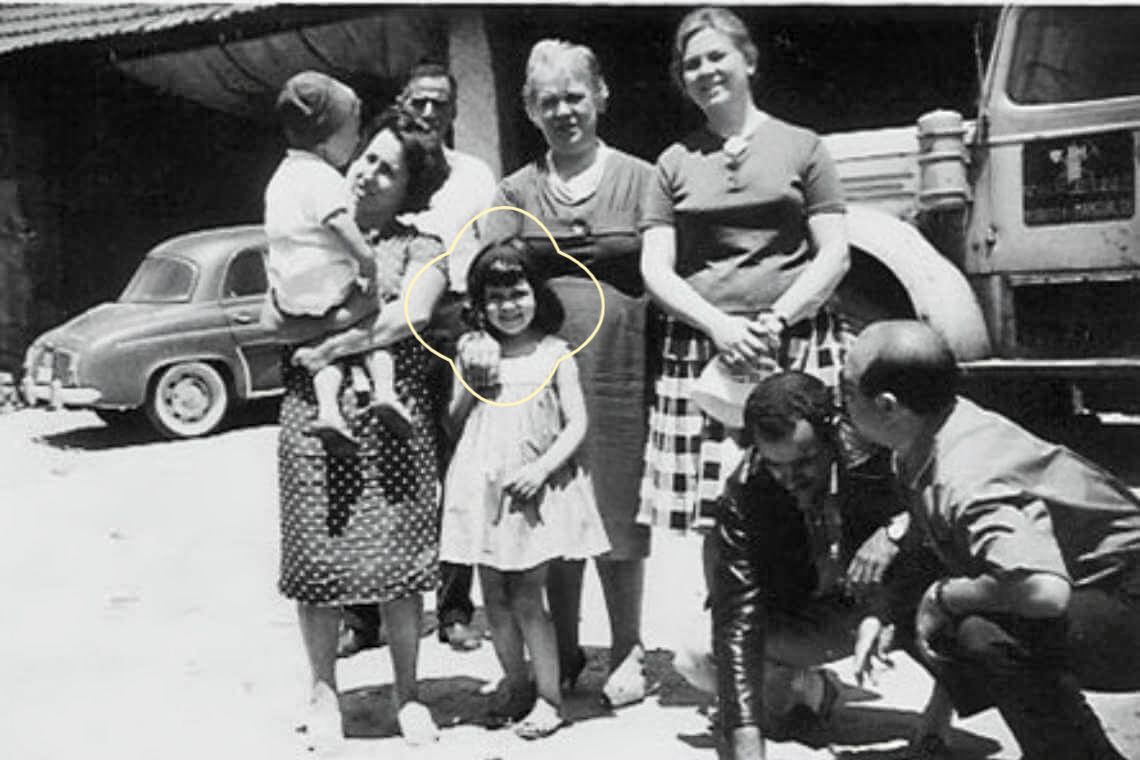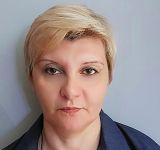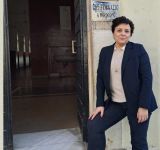A 3rd generation raw materials professional, Mrs Alexandra Carolino CEO of Pegmatitica, has put her personal mark in the sector worldwide, honoring and expanding the legacy of her family business in ethics, respect, determination, resilience and vision. As a child, she learnt to play in the mine and loved spending time there - even the days that her small hands were cut with quartz - and that was the starting point for her to appreciate the value of making a difference in any line of work.
Q.: The mining-metallurgical sector is a particularly demanding professional area with a profile that supports modern technological trends yet, identified more by its conservative structure in terms of administration and operations. How/why did you choose this sector as a career path?
Alexandra Carolino: When we belong to a family with more than 100 years in this sector, we think that we can change and improve everything based on our determination and resilience. Many opinions were exchanged between generations throughout the years. Family gatherings were useful mainly because between us the points of view were generally completely discordant.
However, what our generations had in common was always the respect and teachings that universities gave us, (to this end, one of my Grandfather's daughters married the son of a Mining Engineering scientist from the Instituto Superior Técnico of Lisbon, our reference in Minas at national level). In addition to other aspects, the contributions, teachings and innovative equipment brought by German Engineers during the Second World War were decisive in thinking that this sector is not so conservative after all.
Nowadays, when people invest in electric vehicles, I remember that in underground mining this equipment already existed to help our work. Having worked on exporting feldspar to the ceramics of Manchester, England, or preparing Mica to serve as a lubricant in pretolifera research, or even introducing new products/solutions to help solve «energy saving problems» for our customers back in the 60s makes us use our knowledge from a different point of view. It leads us to improve and diversify our raw materials for an equally dynamic market.
Recycling was not a word commonly used at that time, but rather objectively taking advantage of everything that the mining deposits offered us, because the experience and knowledge transmitted from generation to generation taught us that resources are finite and the various costs inherent to a mining exploration are of great impact and require consideration.
Beryllium, Lithophyllite and Cassiterite were the initial minerals for the war effort. Mica, Feldspar and Quartz followed. Today we focus on Litinated Feldspar, whose introduction to customers took time to be absorbed. Today, in winning consortia, through applications for European funds, we try to carry out research in the company. Contributing to solving problems in related industries, with natural products, is investing in our own mining sector. After the mining/geological exploration of the land, we can once again contribute to the installation of secondary ecological succession and our role ends. Geodiversity enables Biodiversity.
Q.: Tell us a little about your experience as a professional in the mining sector. What challenge(s) have you encountered, hitherto, in your work environment?
Alexandra Carolino: My thesis presented at the University of Porto in the area of Geomaterials and Geological Resources allowed me to access the Technical Management of my Mine in the past. How to survive such adverse and challenging movements for the mining sector? In the past, we judged our products based on their purity with naked eye.
Then, we started to guarantee its quality by controlling and certifying its chemistry. Nowadays we have to get ahead in solving the problems of our customers and niche market, so we have to be flexible by investing in quality and not quantity. Reduce social and environmental impacts by expanding exploration for more noble uses. Even so, other questions arise: How to compete with large investments and multinational companies in the mining sector? ... Dismiss smaller deposits because they are not profitable!...
The business fabric of the mining sector must include all dimensions. Large impacts result from enormous plans that are sometimes inadequate. The larger the size, the greater the difficulty in social acceptance of the profession, regardless of gender. Gone are the days when women were prohibited from accessing underground galleries. I was privileged because my two aunts and I enjoyed a different status and we were very privileged because we were the ones who knew if an accident occurred, It is an immeasurable loss that is very difficult to manage…
The business fabric of the mining sector must include all dimensions. Large impacts result from enormous plans that are sometimes inadequate. The larger the size, the greater the difficulty in social acceptance of the profession, regardless of gender.
Q.: What we acknowledge and welcome in recent years, is an attempt of the mining industry to set up a direct and meaningful communication channel with the modern societies that are more aware of the sector's pros and cons. In this context, albeit at a gradual pace, women are entrusted with executive level jobs. What are your thoughts about inclusion and diversity in the mining environment?
Alexandra Carolino: The impact resulting from the opening of a mining exploration of any size must have underlying assumptions because, in addition to legislation, mining business ethics has a code of honor that we implicitly embrace. It must always be present in our daily lives and especially in the biggest, most impactful decisions.
Ethics, transparency, sustainability, respect and recognition in the community, on both sides, thus covering the environmental and social dimensions of the community. Working in multidisciplinary teams, their regular coordination and planning are fundamental to gaining the trust of our human resources. New equipment should be encouraged to adapt to mining exploration, not for general use only. In fact, bad examples prevail in collective memory. We have to move to another paradigm...
Q.: What are the «critical raw materials» for a woman in this sector to maintain the difficult but essential work-life balance?
Alexandra Carolino: The workspace is also a space for leisure, conviviality and a reason for bringing common bridges between people, when at the same time the workspace is open to more or less informal Geotourism. For me, it was always present since, when I wasn't going to school yet, I played in the mine and all the adults took care of me or challenged me to climb down into the empty bucket of the crane that was hoisting the underground material. Going up and down the stairs took too long for my vivacity.
At the age of 5, I was already a collector of minerals and I made my first transaction. I exchanged one of my many pieces, that is, raw minerals, for the possibility of having 3 pieces cut and cut for jewelry in the United States of America, which took forever, but it happened!
Such would now seem impossible, but the adventure of the experience was always present. Obviously, knees were skinned and hands were cut by quartz every week. Running to the first aid station was usual practice! Today I have neither brothers nor children, but I always accompany groups of young people who come to us whenever possible.
Don't forget that many of our travel options are based on landscape motivations that have underlying geological phenomena that affect us through the interpretative reading of the landscape. From this perspective and, in the fight against geological illiteracy, we can add the reasons for a type of production, for example local agricultural wine, dating the materials used in the region's buildings, its archeology or even, among many others, the geomology that generally adorns the elements of church museums in Portugal.
The workspace can also be a space for leisure, conviviality and a reason for bringing common bridges between people, regardless of their gender.
SHORT BIO
Mrs Alexandra Carolino belongs to a family with more than 100 years tradition in the mining sector, owners the Gonçalo open-pit mine (C-57 or Castanho), in Belmonte, near Guarda city. She studied Geology at the University of Porto in Portugal. Her professional activity began at Sociedade Mineira Carolinos in the underground geological formation of Mangualde, later in the open-air formation of Alvarrões, Gonçalo Guarda Portugal. Thew mines product is feldspar with lepidolite/pegmatite with lepidolite. Alexandra it a pioneer in introducing ceramic pastes manufactured at lower temperatures to consumers and manufacturers of Italian ceramic kilns.
Απαγορεύεται ρητώς η αναπαραγωγή ή αναδημοσίευση, μερική ή ολική, του εν λόγω περιεχομένου. Το RAWMATHUB.GR διατηρεί το αποκλειστικό δικαίωμα δημοσίευσης και παροχής αδειών αναδημοσίευσης κατόπιν έγγραφης άδειας, επιφυλασσόμενο για την άσκηση κάθε νόμιμου δικαιώματος του. Εφόσον επιθυμείτε να χρησιμοποιήσετε το περιεχόμενο, παρακαλούμε επικοινωνήστε μαζί μας στο







